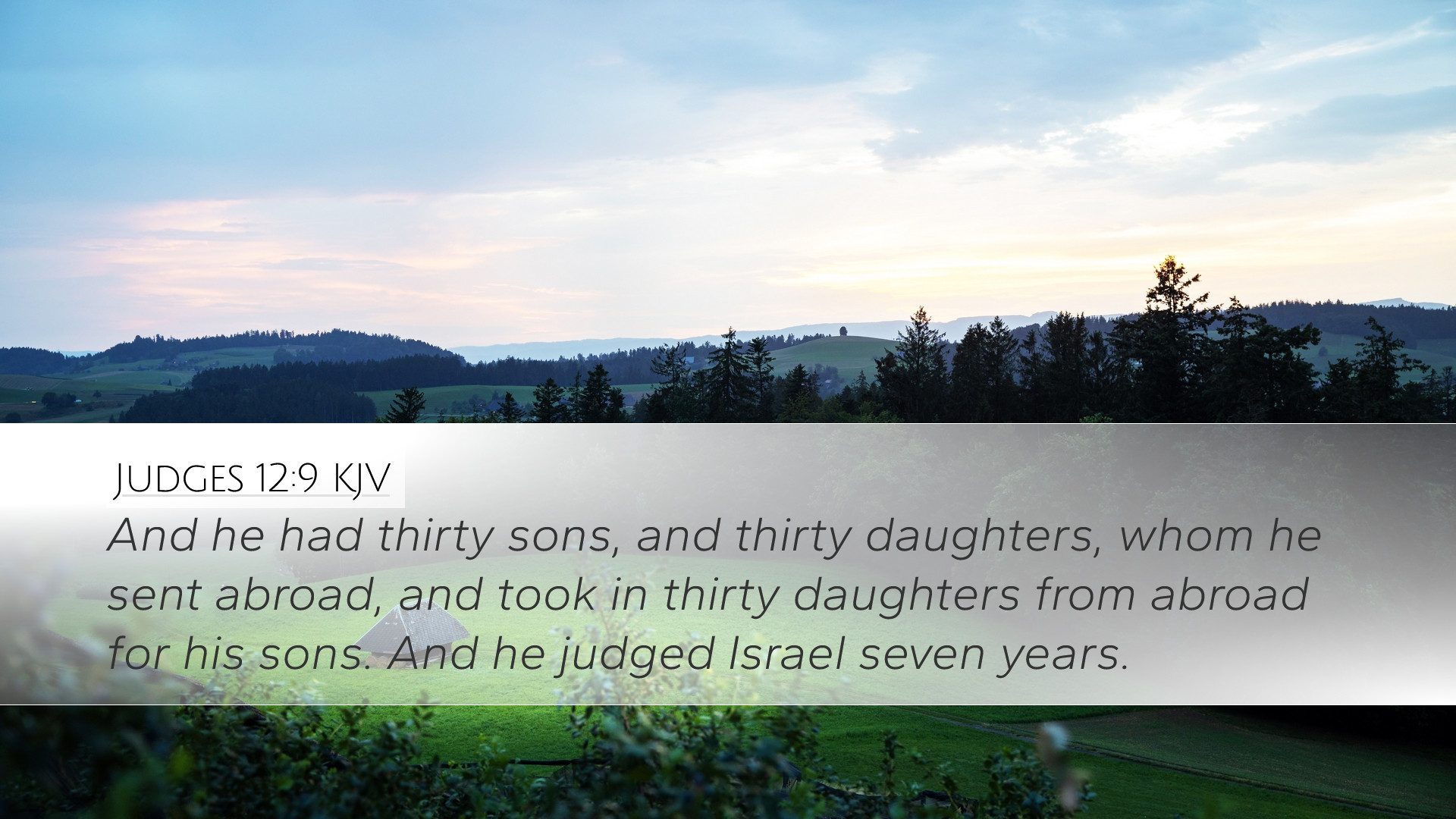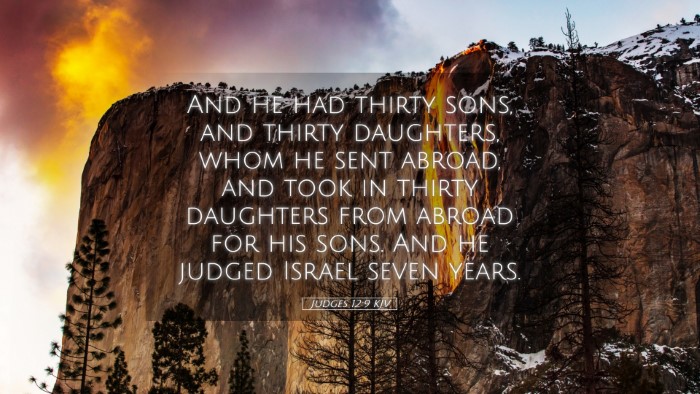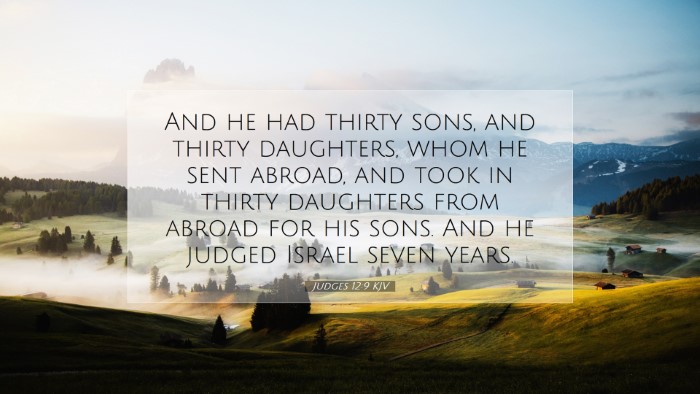Old Testament
Genesis Exodus Leviticus Numbers Deuteronomy Joshua Judges Ruth 1 Samuel 2 Samuel 1 Kings 2 Kings 1 Chronicles 2 Chronicles Ezra Nehemiah Esther Job Psalms Proverbs Ecclesiastes Song of Solomon Isaiah Jeremiah Lamentations Ezekiel Daniel Hosea Joel Amos Obadiah Jonah Micah Nahum Habakkuk Zephaniah Haggai Zechariah MalachiJudges 12:9
Judges 12:9 KJV
And he had thirty sons, and thirty daughters, whom he sent abroad, and took in thirty daughters from abroad for his sons. And he judged Israel seven years.
Judges 12:9 Bible Commentary
Commentary on Judges 12:9
The verse Judges 12:9 states:
“And he had thirty sons that rode on thirty ass colts, and he had thirty daughters whom he sent abroad and took in thirty daughters from abroad for his sons.”
Contextual Background
This verse is located within the narrative of the Book of Judges, a historical account that details the period of Israel’s judges between the conquest of Canaan and the establishment of monarchy. Chapter 12 introduces Jephthah's successor, Ibzan of Bethlehem. His family life portrays a significant aspect of his leadership.
Analysis and Insights
Family and Influence
Ibzan is noted for his fertility and familial connections, with thirty sons and daughters. The mention of the number thirty symbolizes wholeness and completeness, indicating a large and potentially influential household:
- Matthew Henry notes that the procreation of many children among the Israelites is a sign of God’s blessing.
- Albert Barnes observes that the riding of ass colts signifies a level of status, suggesting that Ibzan’s children were not only numerous but also held positions of some social standing.
- Adam Clarke remarks on the arrangement of taking wives for his sons from abroad, reflecting the customs of that time period which often favored alliances through marriage.
Cultural Significance
The act of sending his daughters abroad to marry indicates a strategic move to form alliances between tribes or even with foreign nations, helping to ensure peace and stability:
- This exemplifies the practice of intermarriage as a method of diplomacy, which was prevalent in the ancient near-eastern cultures.
- Such marriages would have been meant to solidify connections, enhance status, and provide security for Ibzan's family and tribe.
Lessons on Leadership and Stewardship
Ibzan’s leadership style can be examined through his familial practices. A leader with a large family likely possessed the means and wisdom to manage such responsibilities:
- Matthew Henry reflects on the idea that a good leader fosters healthy relationships and creates unions that serve the greater good.
- Adam Clarke suggests that good leadership is about building and caring for a community — in this case, extending beyond immediate family to external ties.
Theological Implications
From a theological perspective, this verse invites a deeper examination of God’s providence:
- It underscores the importance God places on family and community.
- It highlights God's blessings on those who seek to live righteously and lead effectively.
- This prosperity in family is emblematic of the covenant relationship God maintains with His people, underscoring generational blessings.
Application for Modern Readers
Contemporary application of this verse can be drawn for church leaders and families:
- Leaders should cultivate strong families, as these are the foundation of strong communities.
- Pastors and theologians can encourage families within their congregations to deepen their ties, both internally and with the larger community.
- It serves as a reminder of God's blessings in our lives, and that the cultivation of relationships is pivotal for spiritual and social flourishing.
Conclusion
Judges 12:9 offers valuable insights into the characteristics of leadership during the time of the judges. Through the lens of Ibzan’s family dynamics, we learn about the role of community, the significance of strategic alliances, and the importance of stewarding relationships. The blessings on Ibzan's household serve as a reminder for modern readers about the importance of faithfulness to God’s covenant and the impact that families hold within the church and society.


